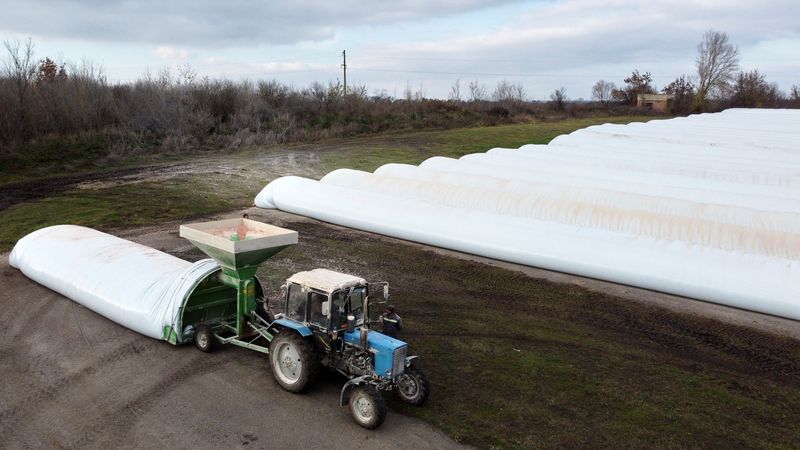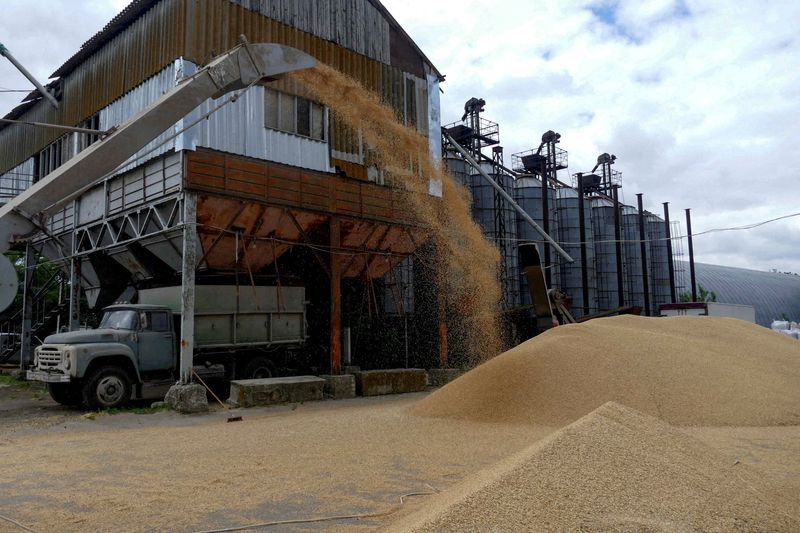KYIV (Reuters) - On a crisp and sunny November morning, Ukrainian farmers lined up to collect U.N.-supplied grain sleeves to store crops over winter as the country faces a significant shortage of storing capacity caused by Russian shelling.
Ukraine has said it may lack up to 15 million tonnes of regular grain storage capacity this season to store its 60 million- to 65 million-tonne grain and oilseed harvest after a large number of silos were destroyed or damaged during the hostilities.
The United Nations Food and Agriculture Organisation (FAO), says it has secured over 30,000 bags which will help to alleviate the storage deficit by 6 million tonnes. Over 7,500 bags have already been given to 356 farms.
Nearly 1,500 farms across Ukraine are being given the sleeves. Each of them can hold around 200 tonnes of grains for up to nine months.
The sleeves, which are 60 metres (197 feet) long and 2.7 metres (8.9 feet) wide, are loaded by a machine which slowly stretches the bag out across the ground while pouring in grain which comes from a separate trailer.
Local grain prices have fallen after Russia's Feb. 24 invasion of Ukraine, and Ukrainian farmers say they face difficulties exporting and high costs because of power outages after Russian missile and drone attacks on energy facilities.
"We are trying to encourage (farmers) to keep the grain and wait for a better price... This is important for their economy, they need money," said the FAO's spokesperson in Ukraine, Viktoria Mykhalchuk.
Volodymyr Tsekhmister, who tends 2,000 hectares (4,940 acres) of land in the Kyiv region, said he was picking up 76 bags to store corn, as low market prices were forcing him to wait.
"At this time in previous years, we would have fully sold (our crops), but today a very high percentage of our production is not yet sold... Last year’s harvest still hasn’t been sold,” he said.

Lyudmylla Martyniuk, director of another farm Kivshovata Agro, which tends 2,300 hectares (5,680 acres) of land in the Kyiv region, echoed these sentiments while collecting 39 bags to store corn.
"Prices for diesel, petrol and spare parts have grown, while prices for our produce, for wheat, corn, they have decreased significantly," she said.
